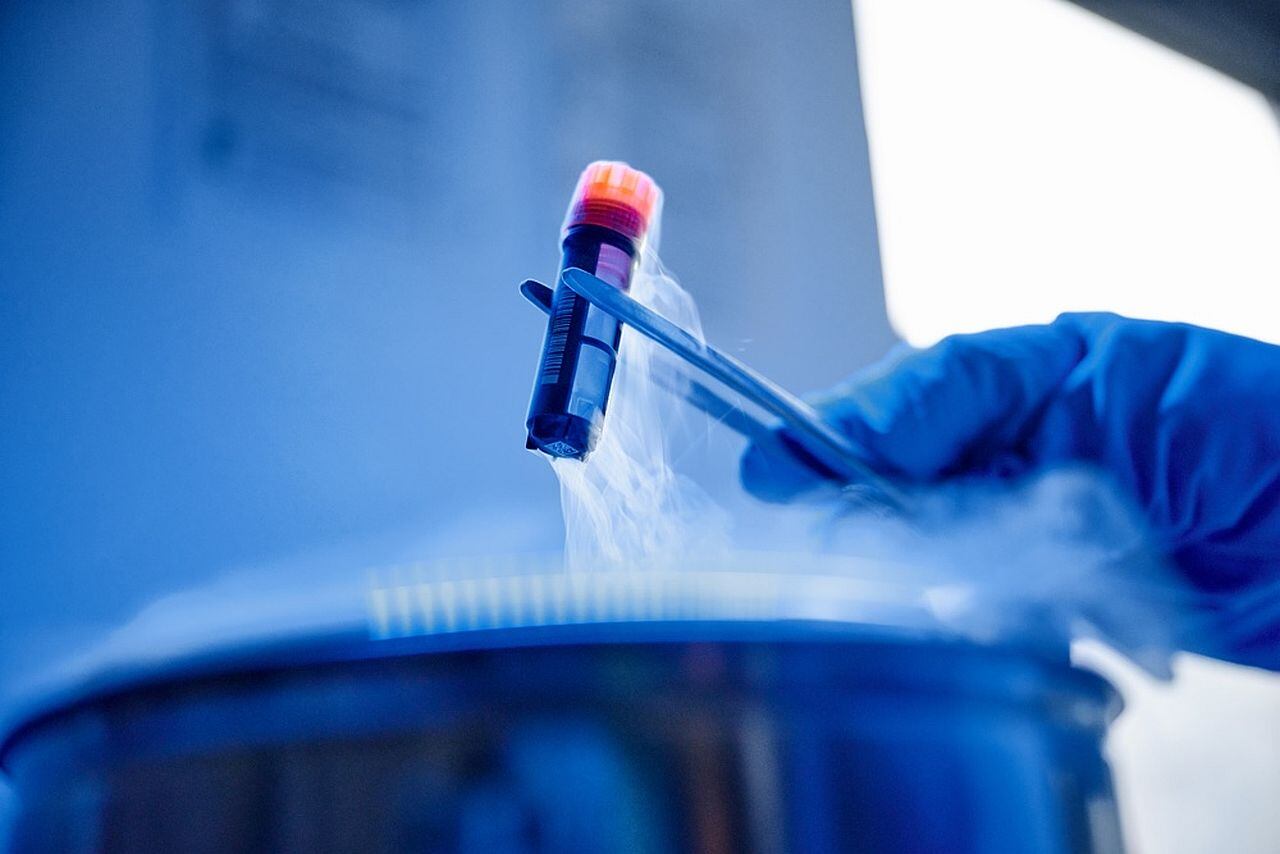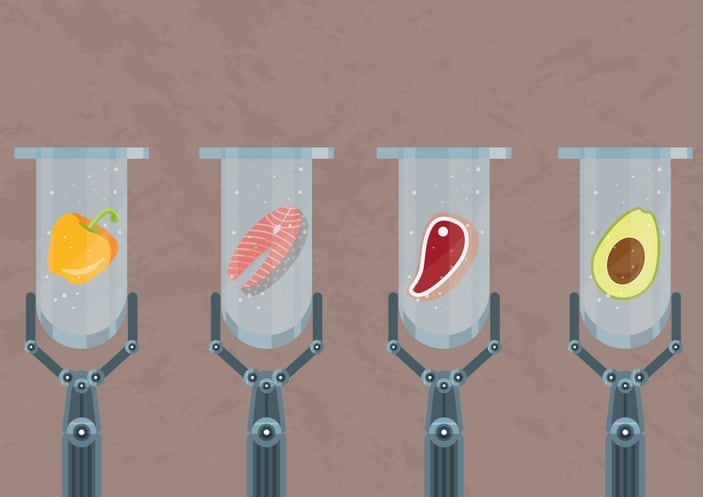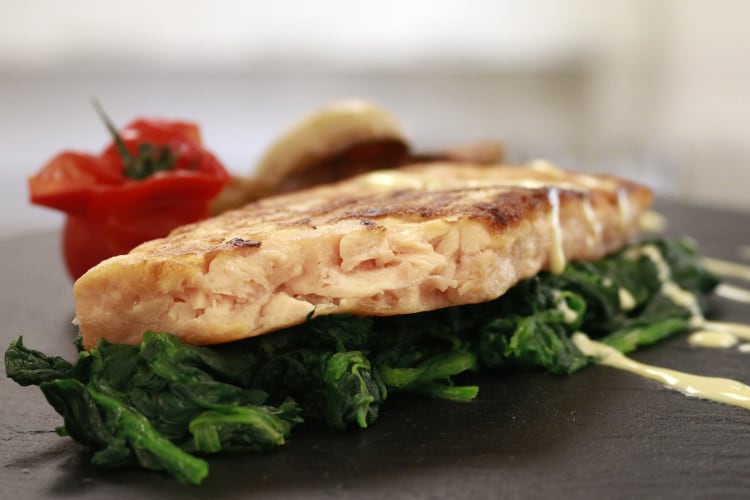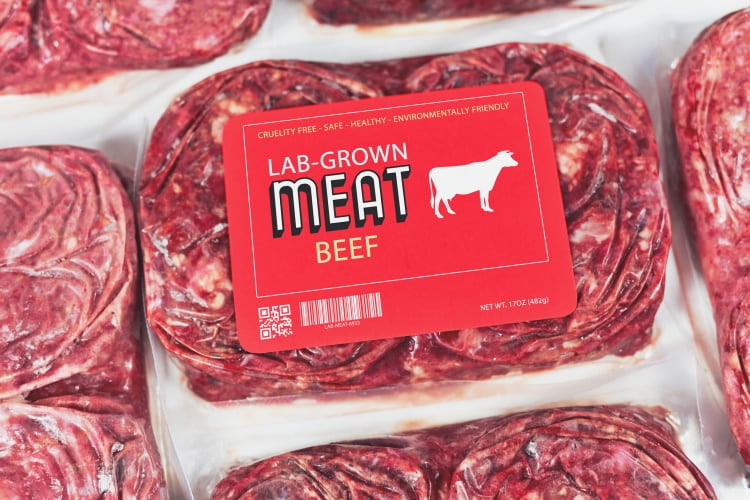Coming less than 10 months after its foundation, the capital will fund the company's intensive biotechnology R&D and product development.
Leading global food and impact investors such as Manta Ray Ventures (UK), CPT Capital (UK), Lever VC (USA), Norrsken (SE) and Be8 (GER) participated in the investment round. The founding of Bluu Biosciences was supported by the Berlin-based company builder EVIG, which specialises in working with scientists to build biotechnology start-ups in the food sector.
“We are proud that we could partner with investors such as Manta Ray, CPT, Lever, and more, that believe in the importance of deep innovation for the aim of a more sustainable food system,” said Dr Sebastian Rakers, co-founder and managing director of Bluu Biosciences.
“The round was closed in a matter of weeks, which indicates how compelling the science team and the science foundation of Bluu is. It also showcases the incredible interest of great investors to support this kind of initiative.”
Simon Fabich, co-founder and managing director, added that the cultivated meat sector, where there are already initial approvals for cultivated meat products in Singapore, is fuelling the prospects for a similarly positive development in cell-based fish products.
Cultivated fish – a sustainable protein source for future supply security?
Bluu Biosciences claims it is the first company in Europe to specialise in the development and production of cell-based fish, or fish meat produced from fish cells that is grown in a bioreactor. Bluu claims that producing cell-based fish without harming the ecosystem and at competitive prices can make a critical contribution to global animal protein supply security in the future.
Other advantages of cultivated fish, it says, include its high nutritional value, the absence of pollutants, its availability even in places without access to the sea and the associated short supply chains.
It claims the production process is resource-friendly and has a significantly lower CO2 footprint as well as water and energy consumption compared to the conventional fish processing industry.
What’s more, it asserts that cell-based fish is an animal product that, unlike wild-caught fish, is obtained without compromising animal welfare. According to the Food and Agriculture Organization of the United Nations, for example, about 90% of all edible fish stocks are already considered maximally exploited or overfished, while demand continues to rise as the world's population grows.
Rakers told FoodNavigtor that cell-based fish is the only way to ensure seafood sustainability and is the answer to industrial fish farming, as it will be able to save trillions of fish lives.
“Fish is among the world's most widely consumed sources of protein. But while demand is increasing as the world's population grows, stocks are declining due to overfishing and environmental pollution,” he said. “Aquaculture is not a sustainable solution for the mass market and only another way of mass breeding of animals. Therefore, cell-based fish is a logical answer. Also, cell-based fish has its advantages compared to cell-based meat: it can be produced at lower temperatures and is less complex in structure.”
With more people relying on fish as their primary source of protein, he claimed ‘cultivated fish has the potential to feed a large portion of humanity’. “Our task is to rapidly operationalize the findings from biotechnological research to leverage this potential,” he said.
Due to Rakers’ decade of experience in fish cell cultures, Bluu Biosciences claims it is in the advantageous position of being able to use proprietary technologies and non-GMO immortalised fish cell lines for production.
“The cells of a line can reproduce many times without the need to perform a new biopsy on a live fish,” he explained.
Bluu plans to have a first prototype product in the form of fish balls or fish paste in 2022. For more complex products such as fish fillets, development is expected to be ready in three to five years.
“Our focus is on Atlantic salmon, rainbow trout and carp. In the future, the end product will not differ in taste from wild-caught fish,” Rakers told us. The company is also optimising its cell lines for omega 3 fat content so that a future product will contain more of the healthy fatty acids than farmed or wild-caught fish.
Its plans also depend of the regulatory landscape, Rakers explained. “As a founding member of Cellular Agriculture Europe [an alliance set up together with Mosa Meat, Aleph Farms and Meatable] we are already doing the groundwork to facilitate the approval of cell-based meat and fish in Europe. Long-term, our goal is to provide the majority of people with access to cell-based fish. Regarding our journey towards production, we want to take our customers with us early on with a maximum of transparency.

What are the energy requirements of mass-market cell-based fish?
In the face of the cell-based meat industry’s assertions that it’s the panacea for the environmental problems associated with conventional meat, cynics often point out that the energy costs of the infrastructures required for cell culture might end up being higher than originally thought.
“To date, it is not yet clear, how exactly the energy requirements would look like. These will also depend on the particular bioprocesses and scaling strategies,” responded Rakers. “Therefore, it is critical to understand the detailed metabolic requirements of our cells as this will define energy demand. However, current estimates and projections like the recent study performed by Delft CA point towards a significant lower energy consumption of cultured meat, if access to sustainable energy sources are ensured, which is also the setting we aim for in the production of cell-based fish.”
Bluu Biosciences cooperates closely with the Fraunhofer Research Institution for Marine Biotechnology and Cell Engineering (EMB) in Lübeck, where it has a state-of-the-art R&D environment at its disposal.
Further partnerships for nutrient media optimisation and bioreactor development are planned. “Bluu Biosciences has set out to produce tasty and nutrient-optimized fish products from fish cells that are free of genetic engineering, antibiotics and environmental toxins," said Rakers. “Above all, that means intensive research and development work to develop the optimal fish cell lines for subsequent production. Bluu is in the excellent position of using proprietary technologies and non-GMO immortalized cell lines to achieve that.”





